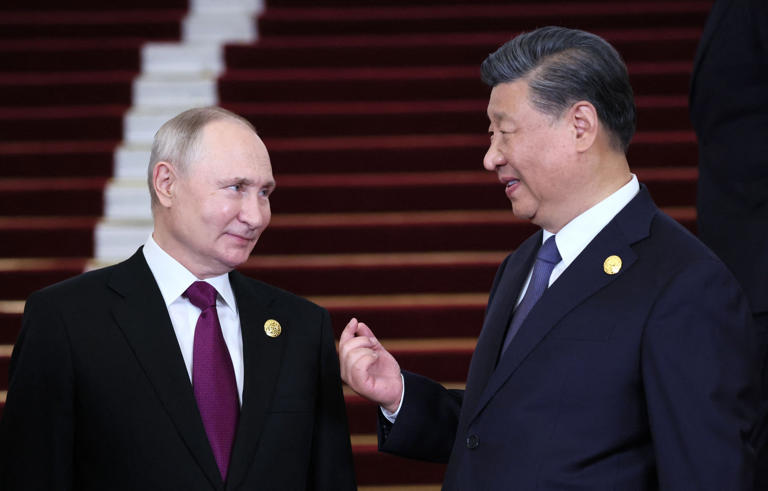
In the heart of Moscow, the air buzzed with tension as diplomats and government officials scurried through the corridors of power. The Kremlin, a symbol of Russian might and influence, was about to face an unexpected challenge – a major blow from its longstanding ally, China.
The trouble began when a high-ranking Chinese official, Vice Premier Li Wei, arrived in Moscow for what was supposed to be routine discussions on economic cooperation. The two nations, linked by historical ties and shared interests, had often presented a united front against Western influence. However, this visit took an unexpected turn, sending shockwaves through the Russian political landscape.
During a closed-door meeting, Vice Premier Li Wei delivered news that left Russian officials reeling. China, he announced, had decided to reevaluate its economic partnerships and strategic alliances, including its collaboration with Russia. The decision was fueled by China’s evolving global priorities and a desire to diversify its partnerships for long-term stability.
The Russian government, unprepared for such a seismic shift, found itself grappling with the sudden realization that a significant portion of its economic and political support was slipping away. The announcement sent the Russian ruble into a freefall, and the Moscow Stock Exchange witnessed panic selling as investors scrambled to assess the implications of China’s decision.
The news reverberated beyond financial markets. Ordinary Russians, accustomed to a narrative of a strong alliance with China, were left questioning the stability of their nation’s foreign relations. The media, tightly controlled by the Kremlin, struggled to spin the situation in a positive light, leaving citizens in a state of uncertainty.
As Russia grappled with the fallout, reactions from the international community were swift. Western powers seized the opportunity to exploit the crack in the Russia-China alliance, attempting to sow further discord between the two nations. European leaders cautiously extended invitations for renewed diplomatic dialogue, while the United States publicly voiced concerns about the direction of Russian-Chinese relations.
Meanwhile, in Beijing, Chinese leaders downplayed the situation, emphasizing that the reassessment was not an outright severance of ties but rather a strategic realignment. They cited changing geopolitical dynamics and the need for China to forge new partnerships to ensure its own economic resilience.
As days turned into weeks, the once-unshakable alliance between Russia and China showed signs of strain. Diplomatic exchanges between the two nations became formal and terse, lacking the warmth that had characterized their relationship in the past. Analysts around the world closely monitored the situation, speculating on the potential geopolitical realignment and its broader implications.
The story of Russia suffering a major Chinese blow became a cautionary tale about the unpredictability of global politics. It underscored the fragility of alliances, even between nations that appeared inseparable for decades. As the dust settled, both Russia and China faced the challenging task of redefining their roles on the world stage, leaving the international community to wonder about the future landscape of geopolitical relationships.






